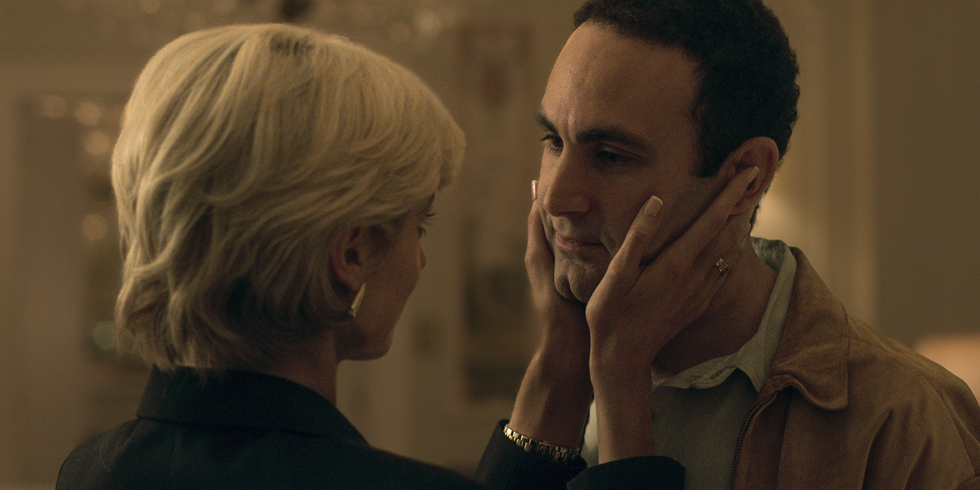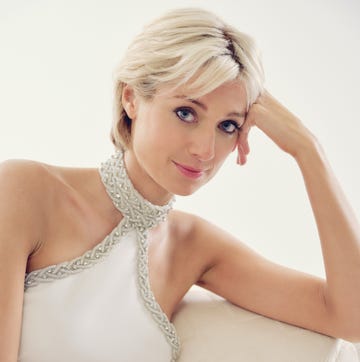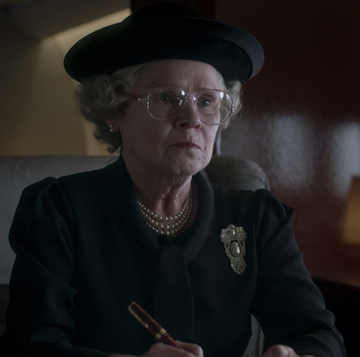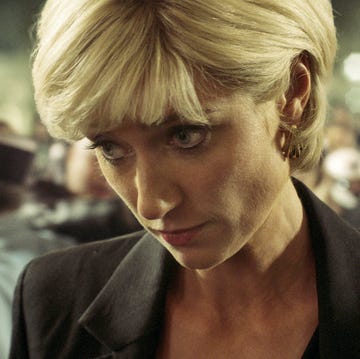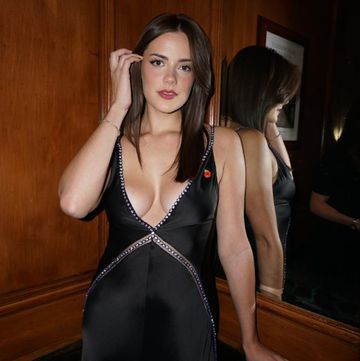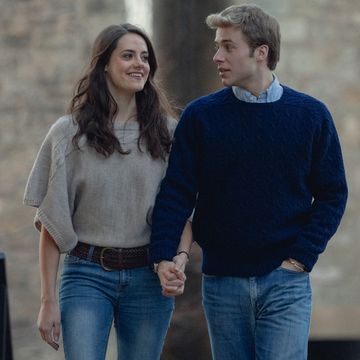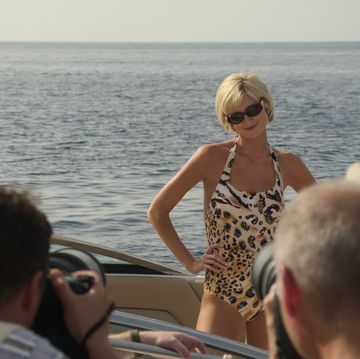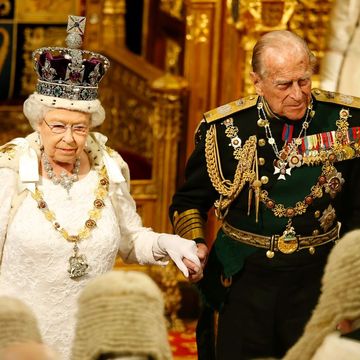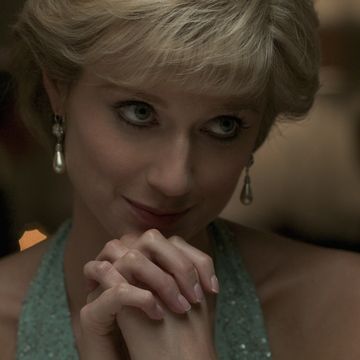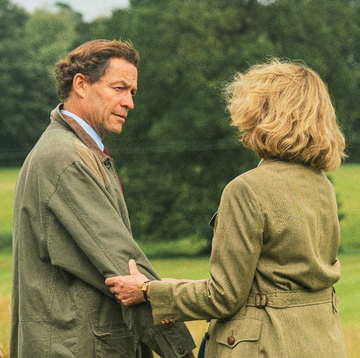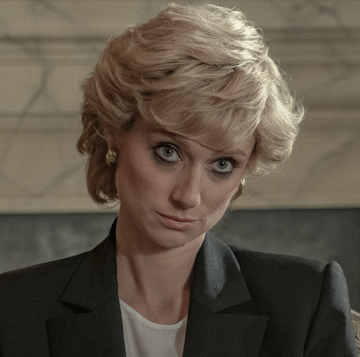In its long-awaited sixth season, The Crown explores the relationship between Princess Diana and Dodi Fayed, and their tragic deaths in Paris in August 1997. Dodi's father, businessman Mohamed Al-Fayed, also plays an important role in Season 6 of the Netflix series. In fact, the show suggests that Al-Fayed orchestrated the relationship between Diana and Dodi, although in reality this idea has been disputed, per Deadline.
But who exactly was Mohamed Al-Fayed, and what was his involvement with the royal family?
Mohamed Al-Fayed was a wealthy businessman.
Mohamed Al-Fayed died on August 30, 2023, at the age of 94, via The New York Times. Although Al-Fayed’s reputation became inextricably linked with the tragic death of his son Dodi Fayed, he was also known for being an incredibly successful businessman throughout his life. In 2023, Forbes Middle East estimated Al-Fayed’s net worth to be $2 billion.
As well as owning the Ritz Hotel in Paris, Al-Fayed was the owner of Harrods department store in London, England, for 25 years, per The New York Times. According to Forbes, Al-Fayed sold Harrods in 2010 for $2.4 billion. He was also the former owner of Fulham Football Club. According to his obituary in The New York Times, Al-Fayed had businesses and homes all over the world, along with a fleet of 40 ships.
He had five children including Dodi Fayed.
In 1954, Mohamed Al-Fayed married Samira Khashoggi, and the couple welcomed their son, Emad El-Din Mohamed Abdel Mena’em Fayed, known as Dodi Fayed, on April 15, 1955, via Time. Al-Fayed and Khashoggi would divorce in 1956, and the businessman remarried in 1985, tying the knot with Heini Wathén, with whom he had four children—Jasmine, Karim, Camilla and Omar—all of whom were born in the United Kingdom, via The New York Times.
Mohamed Al-Fayed was denied British citizenship.
Mohamed Al-Fayed was born on January 27, 1929 in Alexandria, Egypt, although he publicly claimed to have been born in 1933, via Brittanica. After moving to the United Kingdom in 1974, Al-Fayed built an incredibly successful business empire, but he often found himself at odds with the establishment. As well as facing significant pushback when he purchased Harrods department store, Al-Fayed also found immense difficulty when he tried to obtain British citizenship.
Per Brittanica, his first attempt to become a British citizen was denied in 1995, and each subsequent attempt was also refused. In 1999, after Al-Fayed’s application was refused once again, he told reporters, via The Guardian, “It’s okay, it’s no problem, I’m not desperate, I’m not leaving the country, I’m here forever—I’m staying.” According to the BBC, it’s thought that Al-Fayed’s interference in government matters may have contributed to the repeated denials regarding citizenship, in spite of the fact that four of his five children were British citizens.
He had a keen interest in royalty.
In 1986, Mohamed Al-Fayed signed a 50-year lease on the Parisian home of Wallis Simpson and the abdicated Edward VIII, known as the Duke and Duchess of Windsor, via Brittanica. The property, 4 Route du Champ d'Entrainement in the Bois du Boulogne, featured 14 rooms, and would later be renamed Villa Windsor by Al-Fayed, per Town & Country. Following his renovation of the iconic home, Al-Fayed was given the Plaque de Paris in recognition of his restoration work, per Brittanica.
The businessman spoke about his fascination with the Windsor residence, and revealed what it was like living there after the royals. “It’s like a mausoleum,” Al-Fayed told People. “It sometimes gives you the creeps—both of them having died here. But it's still a happy place, a great fantasy which I love to live in.” Per Yahoo News, Al-Fayed actually met the duke and duchess on one occasion before their deaths, and was reportedly enamored with their love story, calling it “the romance of the century.” “And I had the chance to preserve where [the Duke of Windsor] lived,” he explained, per Yahoo News. “And all these objects–they're the heritage of Britain, which is my second home.”
He suggested the crash that killed Dodi and Diana was a conspiracy.
Dodi Fayed and Princess Diana died on August 31, 1997, in a car crash in the Pont de l'Alma tunnel in Paris, France. While Dodi died at the scene, Diana passed away after being transported to Pitié-Salpêtrière Hospital, via Town & Country.
Soon after Dodi and Diana's deaths, Mohamed Al-Fayed started publicly suggesting that the accident had been the result of some sort of high-level conspiracy. “I believe in my heart 99.9% that it was not an accident,” he reportedly told The Mirror (via the BBC) in February 1998. “That car didn't accidentally crash. There was a conspiracy. I will not rest until I have established exactly what happened.”
Per the BBC, Al-Fayed also suggested that Dodi and Diana had gotten engaged on the night they died, and that the former Princess of Wales was pregnant at the time of her death. However, an inquest into Diana’s death ruled that she wasn’t pregnant when she died, and suggested that there was little evidence of an engagement, via The Scotsman. However, the BBC did report that a diamond ring worth approximately $160,000 was delivered to Dodi at the Ritz Hotel in Paris just hours before he died.
Al-Fayed gave evidence at the inquest into Princess Diana’s death, emotionally telling the coroner, via the BBC, “I am a father who lost his son.” He continued, “I am fighting unbelievable forces.” The inquest eventually ruled that Dodi and Diana's deaths were the result of dangerous driving by their chauffeur, Henri Paul, who died in the accident, and by the paparazzi who were following the vehicle, via CBC. Paul was found to be three times over France’s legal alcohol limit, while it’s been suggested that the fact the passengers weren’t wearing seatbelts may have also contributed to their deaths, per CBC.

